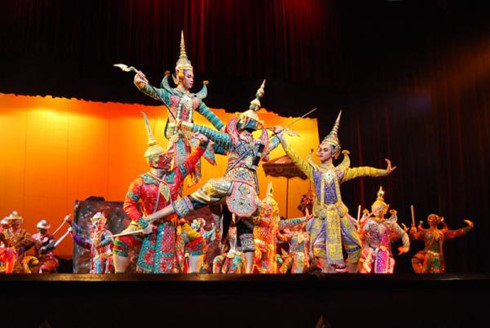Thai masked drama to be proposed as UNESCO Intangible Cultural Heritage
- 100 typical specialties of Vietnam, foreign visitors should taste
- New plant discovered in Cao Bang
- Fascinating wedding traditions worldwide
The cabinet has approved the proposal by the Ministry of Culture, which would submit a document containing this proposal to the United Nations Educational, Scientific, and Cultural Organization (UNESCO).
Intangible cultural heritage refers to the practices, representations, expressions, knowledge, and skills transmitted by communities from generation to generation.
 |
According to UNESCO, intangible heritage items are based on tradition or are living expressions inherited from ancestors and passed on to successors.
UNESCO established its Intangible Cultural Heritage list with the aim of ensuring the better protection of important intangible cultural heritage items worldwide and the awareness of their significance.
The Department of Cultural Promotion has been assigned to represent Thailand in signing the document. The khon masked drama will be submitted under the name "khon,” and traditional Thai massage "nuad Thai.”
Khon is a classical masked dance derived from Indian temple rituals and dances and draws its story line from the Ramakian, the Thai version of the Indian epic Ramayana.
All performers, except those in the roles of deities and humans, wear masks to portray precisely defined and identifiable characters.
During the performance, the narrator and singers jointly relate the story.
In the past, the khon was restricted to entertainment for the king, who had the exclusive right to order a performance in royal ceremonies. A khon performance used only male performers. Nowadays, the "female” characters are portrayed by females.
The performers on stage do not sing or talk but must dance in harmony with the music.
As for nuad Thai, it has been in existence since ancient times. Basically, it involves the use of hands to press, push, and rub along various parts of the body to relieve the strains and tensions of daily life.
During the early Rattanakosin period, King Rama III ordered the gathering of information in various fields of knowledge, including traditional Thai massage, and had it engraved on stone slabs at Wat Pho (Temple of the Reclining Buddha) in Bangkok.
Nuad Thai is connected with local culture and has become one facet of alternative healthcare.

